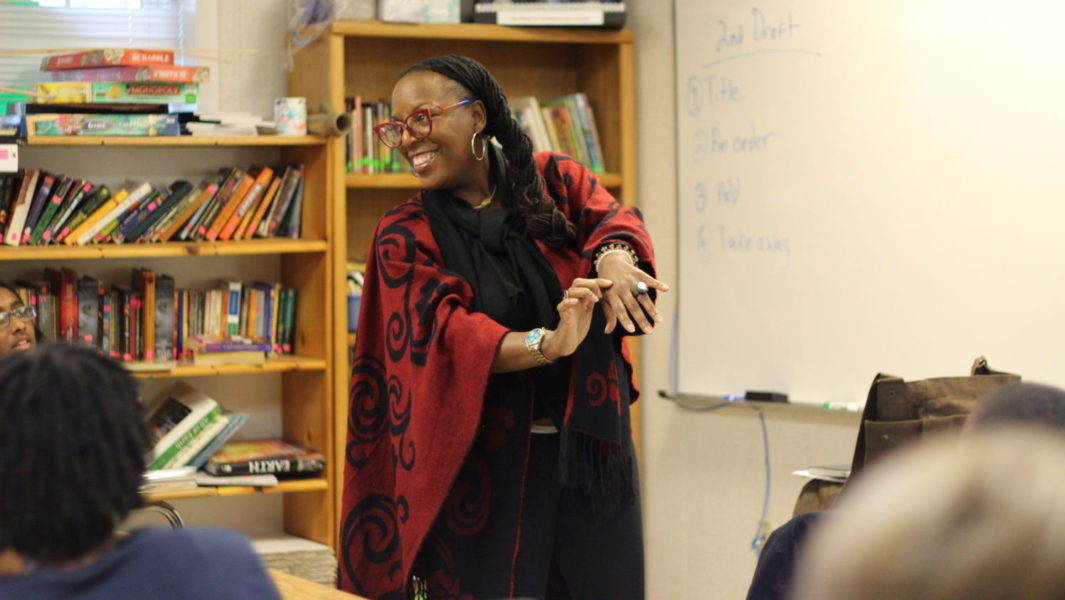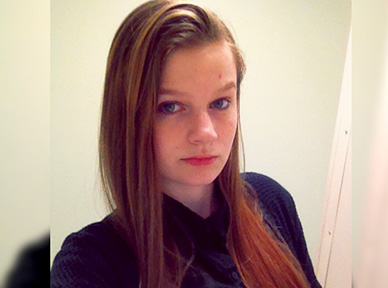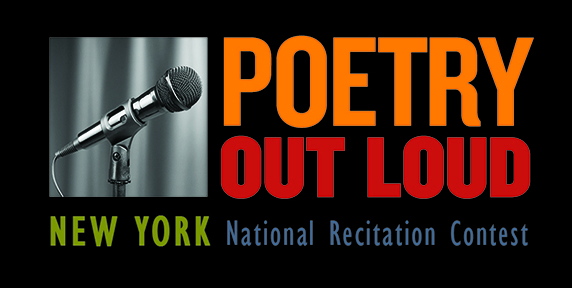Author and T&W Board member Tayari Jones selected Glenis Redmond’s essay, “Poetry as a Mirror,” as the runner-up for the 2018 Bechtel Prize. Teachers & Writers Collaborative awards the annual Bechtel Prize to the author of an essay that explores themes related to creative writing, arts education, and/or the imagination.
In “Poetry as a Mirror,” Redmond explores what it means to be born a poet and how the work of other poets—or even a single poem—can offer a sense of connection, spark a career, and influence an artist for a lifetime. Learn more about Redmond in her interview with T&W editorial associate M.L. Thompson.
Poetry has given me a mirror in which to reflect upon myself as a Black girl turning into a Black woman. The first poem in which I saw my reflection happened when I was eleven years old. I was a fifth-grade student at Aviano Elementary in Ms. Vann’s class in Aviano, Italy–we were an Air Force family stationed overseas. On one uneventful day in February, the teachers rounded up all of us elementary students and walked us over to the high school gymnasium for a Black history program. Assemblies in my eleven-year-old mind were cool because we missed class, but assembly in lieu of recess was not so cool. However, little did I know that I would not miss my favorite playground game that day, Prison Ball–little did I know that my small world was about to be magnified.
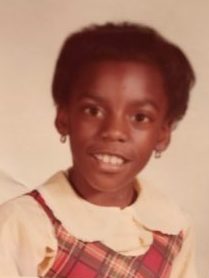
I am sure that I was well mannered and respectful during the program, because that was how I was raised. Yet it was not until Yolanda Walker, a tenth-grade girl, took the stage that I became fully engaged. I became rapt before a word ever fell from her mouth. I noted how cool Yolanda was–dressed in all black and sporting an Angela Davis afro. Her clothes, her swagger, and her sense of agency took me in. Then she recited a poem, “1,968 Winters” by Jackie Earley. Her performance blew my fifth-grade mind. It was not just the poem, but how she conveyed the poem with a full-bodied delivery. The essence of the poem came alive with Yolanda’s gestures, stance, and attitude.
The poem she read evoked laughter with its colloquial speech and repetition of black black black, then white. On the surface it could have been mistaken for just a funny poem. I laughed along with everyone else, but the turn in the poem got me. When the speaker walks out into the white snow after arming herself with black feelings, black music, and black thoughts, I wasn’t laughing anymore. I saw myself in a piece of literature for the first time. This poem instructed: If you live in a world that does not embrace or accept you, you will feel emotionally cold. I got it. The poem demonstrated how I felt in my young life to date. Up to then, I had never seen myself reflected accurately in a textbook or any other literature. I liked my teachers, but they were not culturally competent.
During that same year, Ms. Vann showed a film about Africa for a social studies lesson. She turned on the rickety reel-to-reel film projector and images danced before us: bare-breasted women, men with bones in their noses, grass huts with mud and dirt everywhere. It was the first time that I really understood perspective. I knew this was not a lesson on Africa, but how the filmmaker saw Africans. He depicted the people from my homeland as unbecoming. During the film the whole class turned in unison to stare at me. I felt Jackie Earley’s white snow impact in that moment. The cold slap was visceral and almost audible.
During recess that day, a girl (let’s call her Cheryl) yelled that the Africans in the film were ugly. I felt my psyche rise up. Generally I was mild-mannered, but I was always a champion of underdogs. In this case, my people and I were the underdogs. I was ready to put a fist up and ready to fight, metaphorically. Cheryl shouted, “Why are you so angry? They [the Africans] have nothing to do with you.” I could not articulate how much that moment in the classroom had everything to do with me. I did not know how to tell her that the melanin in my skin actually meant that my origin story was connected to the continent of Africa. I was angry at the stares of all the students. I was angry at Cheryl’s comment. I was angry with Ms. Vann for not setting a better context for the film. I felt overwhelmed and betrayed by the fact that the African-American story was not important enough to be taught in school. At that age I was not able to articulate my feelings, but I felt every one of them: anger, sadness, rage, shame, and guilt. I was incensed, too, that this was my first look at my lineage educationally and I got this racist roughshod reflection of Africa.
Later in the year, Ms. Vann read out loud Mark Twain’s Huckleberry Finn, which used the word nigger frequently. Ms. Vann had a difficult time getting through the book as she stumbled each time she got to the word. I remember her deferring to me. I reassured her and the class. I said, “Just read the words. We all know that Twain is trying to paint a picture of how things were.” My marks for citizenship were always the highest. I was constantly standing up for others. Yet I never had anyone to stand up for me. I realized that Jackie Earley and her poem stood up for me. Got up this morning feeling good & black. I needed the affirmation of this poem. It showed up right on time.
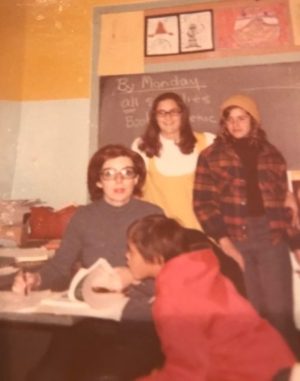
Though I adored Ms. Vann, her classroom was not particularly inclusive. However, she did reinforce my love of reading and stories. She read The Hobbit to us for an hour a day. I loved putting my head down and listening, hearing about Bilbo Baggins and his journey out of the shire. I was a voracious reader and I loved stories. I was not the best student, being slightly dyslexic. But if Ms. Vann or any other adult had just paid attention, they would have discovered my voluminous vocabulary was matched only by my vast imagination. If they had seen me, they would have known that I was a poet/artist at heart.
The previous year, in the fourth grade, Ms. Anderson had assigned an activity that left me culturally bereft. She instructed us to draw a coat of arms depicting our familial lineage. We had to include our country or countries of origin. I knew I was from Africa, but I knew nothing about the countries in which my family originated. My parents did not know either. I felt cheated. Ms. Anderson did not address slavery or what America did to my/our lineage via the Atlantic slave trade, which hindered me from knowing my history. I did not complete the assignment, because I did not know where I/we fit. There were too many holes and gaps in my education, and in my psychological development, for me to articulate what was going on within my black girl psyche. I knew deep down that I needed more. “1,968 Winters” became that more.
For me, “1,968 Winters” is what Edward Hirsch in How to Read a Poem coins an initiation poem. He identifies this type of poem as the door opener to poetry. When Jackie Earley via Yolanda Walker read the poem, I felt the poem was speaking directly to me. Earley’s poem spoke to me about who I was and the state of my present world. I had been occupying so many white spaces with my Black-girl self. At eleven, I was already tired of carrying the burden of explanation. I was already tired of being judged and misjudged by white people’s standards.
Self-Portrait: Bard in the Making
When I was in the fifth grade
I was the biggest tomboy
always in t-shirt and jeans
baseball cap turned sideways
complete with ashy elbows, skinned knees
and a mouthful of bubble gum
I made popping and blowing bubbles
into an art formI was the princess of the playground
ruled at Prison Ball, handball, and tetherball
I could pummel, smash, catch, and throw
I was the fastest sprinter in the school
I could stop on a dime
and give you nine cents changeIn other words, I worried my mother
She wanted me in matching outfits
legs crossed and voice ladylike quiet
but I was olly-oxen-free loudAt eleven I heard my first poem
At a black history program Yolanda Walker recited
Jackie Earley’s poem “1,968 Winters”
Her voice became a red rubber ball
She threw it over the heads of all the other kids
to me on the last row
sitting crisscross applesauce
The words hit with a thud
in the center of my chest
It grew,
it grew,
and it is still growingI now take poetry in my own hands
throw it to others
hitting them in the center
of their chests with a thud
making a team of poets around the world.
I did not begin writing poetry until two years after my elementary encounter with poetry, when my father retired from the Air Force and our family returned to my parents’ native South Carolina. We moved to the rural town of Piedmont. Ironically, we moved to a subdivision named Canterbury. It could have been accidental, but I prefer to call it grace, even if I did not know of Chaucer at the time. I would later learn. At Woodmont Junior High School, in Ms. Sergeant’s English class, I wrote my first poem. It happened during an assignment when we were instructed to free-write in our journals for fifteen minutes.
I began not only writing for myself, but for others—friends and classmates commissioned me to write poems for them. I would take their inventories: name, favorite colors, hobbies, and recent crushes. Then I’d go home, retreat to my room, and compose their poems. Writing fulfilled me. It gave me a sense of purpose and I loved seeing the pride on my friends’ faces when I read their poems to them. One friend contacted me twenty years later to tell me she had lost her poem and asked if I could write her another.
My home church, Bethlehem Baptist Church, took me seriously as a poet. When someone passed, I was consulted. I would gather vital information about the person, then brainstorm and create a poem for the deceased. The day of the funeral, I would be on the program, even though I could barely see over the pulpit. I would deliver my poem. So, by the age of fourteen, my church embraced me as an elegiac poet. I had a role in the community. The rhythm of “1,968 Winters” still thrummed as I wrote in my journal. That poem’s black drum of urgency and necessity had already begun to rearrange my outlook on the world. I was writing/righting a world that did not embrace me.
Returning from Italy to South Carolina, I experienced an extreme culture shock. I began surveying the landscape in the South. I was born in Sumter, South Carolina, on Shaw Air Force Base, in 1963, and my siblings and I had more possibilities than my parents’ sharecropping South Carolina past, because we were raised on military bases around the world. We were afforded opportunities through my father’s military trek. We had left our parents’ reality—the blatant racism of the Jim Crow south. While crisscrossing America during the early stages of integration—in keeping with my father’s Air Force assignments—we still faced racial challenges. The country was legally forced to accept blacks educationally and professionally; compassion and empathy, however, could not be legislated. Walking into classrooms as the only Black was a sign of the times—the advancement of civil rights. But that advancement came along with burdens. My sister and brothers and I integrated almost every elementary classroom we attended.
We were not prepared to enter a world different from our parents’ segregated world. In our home and community, we grew up accepted and loved. This newly integrated society offered positives, but along with the advantages came obstacles and challenges. There were times when we were mocked as aberrations and curiosities due to our differences: culture, color, language, and ways we talked. My sister Velinda, the oldest of us, was the first one to integrate the elementary school in Sumter, South Carolina, in 1963. As a first-grader, white boys wielding sticks and calling her racial epithets chased her home. Poetry became the lens through which I processed these racially charged experiences.
When I became a teaching artist and touring poet in the early 90s, I purposefully wrote poems that reflected my culture. I intentionally performed those poems to students. After my readings, students would flock around me to talk to me. They saw themselves in my work—it is inclusive of all students, but especially children of color and those who are disabled, impoverished, or disenfranchised. Choosing to perform “1,968 Winters” on tour was a no-brainer—the mixture of colloquial diction enabled me to embody the poem effortlessly and seamlessly. Students and teachers all across the country responded to the poem as my classmates and I did in 1973—with raucous laughter. However, I wondered if any students got the deeper meaning, as I did when I was in the fifth grade. Martin Luther King, Jr. was assassinated on April 4, 1968, as were many of our leaders that same year. Earley’s poem refers to this heinous time in history. I am sure the poem made me a social activist. In this poem, “Wind in my Name,” written in 2015, I am still grappling with how racism has impacted my family and me.
Wind in My Name (excerpt)
What my mama and daddy handed down to me
On the day before King’s “I Have a Dream” speech
My name is grounded in what’s real.
I don’t need no stage name. No hip-hop monikerMy parents knew their baby girl born
In the ’60s need to be fitted with two black fists.
Irony aside of the Celtic twist of the slave-holder’s grip.
I like the tight fit of my two Welsh names:
Valley on one hand and wind on the other
Ancestral forces at my back, while I face the Shadow of Death:The decade of killing into which I was born
King on the balcony of the Lorraine,
Evers in Mississippi in his own driveway
The bullets that struck Malcolm seven times
On 166th and Broadway
And mama’s brother Uncle Pete slaughtered
By his so-called doctor, “Boy take these pills
Ain’t nothin wrong with you, but lazy.”
Only for him to die the next day
On his living room couch at age 23.There’s real hurt in this hurricane.
So, there’s no pretense, just an urgency
And I need every fiber in my fast twitch muscles
As I blow past pain as I run like the wind in my name,
But they don’t like it when we run.
Made laws against our legs poised in the arc of freedom.
Even though I point to “1,968 Winters” for making me poet, I really believe that I emerged from the womb with what I term listening skin. I was a high-strung and a skittish child. My little-girl self was a full-body antenna––picking up on everything and everyone. I still cannot tell if my temperament is either a gift or a curse. I can say that most of the time I feel plagued by it. Most days I literally feel like I am turned inside out—born with little or no protective layering.
I was badgered and bullied even in my childhood home for my thin skin. I ached in close proximity to the serrated edge of my father’s rage, whether he spoke or not. I did my best to stay away from the every-which-way in which he cut. He always alarmed the house with his five-alarm emotional state. No one called me poet, but I had a symbiotic relationship with nature, music, and my intuition. I could sense the world and people’s emotions. My mama would call me an old soul. She’d say, “Gurl, stop staring straight through me like you are reading my soul.” What was I to do? I was a big-eyed, observant child. I don’t think I was reading souls, but I could feel people’s feelings. I also earned the nicknames crybaby and scaredy-cat. Nighttime was the worst for me. In bed, I stayed awake with my over-blown imagination and my psychic sensations. I don’t ever recall a time that I did not vibrate with the “too-muchness” of the world. There was beauty, too; I could always hear the trees singing and I spent as much time outside as possible.
Maybe this gift/curse was a predisposition to poetry. I listened. I collected feelings, thoughts, images, and impressions. I was a recorder. At age four, I was probably already a poet. I did not have the benefit of the written language, but I was snapshotting, cataloguing, and storing meaningful moments. Even today I rely on my recall to create poems about the time when we were dirt poor and lived on Trafton Street in Tacoma, Washington. About the time I attended Head Start in the 1960s. That program helped keep me from falling through the cracks. We had Enrichment one day a week after school. My big sister, Velinda, would take me to the school gym. The first time I walked in I was awestruck by the hula hoops, batons, and music playing. A dance teacher was giving lessons in interpretive dance. This experience helped shape my voice. I processed my too-muchness, and the world’s, with arms, legs, and hips. I am sure the performance poet was born that day. I learned to use my whole self to speak.
Poetry spoke to my whole self. I began filling in the blanks of my education with words and rhythms that I put on the page. Maya Angelou’s book, I Know Why the Caged Bird Sings, not only gave me a realistic context of racism; it helped to mend my psyche. Her book was another mirror, which allowed me to see myself. Years later I discovered an essay, “Curriculum as Window and Mirror,” written by Emily Style. She writes about “the need for curriculum to function both as window and as mirror in order to reflect and reveal most accurately both a multicultural world and the student himself or herself.” She also posits:
Traditionally, American education has been more comfortable focusing on similarities. In fact, there are still American educators who pride themselves on being “color blind,” thinking that ignoring “accidental” differences of race or gender or region or class creates the best classroom climate. Promoting such partial seeing is highly problematic for the creation of curriculum, which will serve all students adequately.
When Maya Angelou died in 2014, her death caused me to reflect on how much her book and her work fortified me. I wrote this poem to honor her:
Caged Bird Sings
Honoring Maya Angelou‘cause she’s born bound
belts blues
through shut doors
with throat open wide
sings raw truthSings ‘cause singing
be better than weeping
ask Billie and NinaSings ‘cause sky calls
and she more wild than cage
so she beat wings
against bars finds music
in pen upon paper upon heartShe sings ‘cause her dark skin
mirrors night sky
deep down she knows
not everyone loves her back
her black velvet contrast
against moonshineKnows her full lip
and fuller nose
in this white world
be: acquired taste.She sings ‘cause she can’t erase
Ron Clark’s Doll Experiment circa 1950
Proves what everybody knows
White child picks white doll
Black child picks white doll stillShe sings ‘cause
Stamps, Arkansas
Sumter, South Carolina
holds black girls the same way
Dome squashed with low expectationsCaged bird sings
‘cause broken wing hurt
did not begin with her
been passed down
She comes from a long line
of birds who don’t flyCaged Bird sings ‘cause
she needs exit strategy
Reads Maya Angelou’s books
like road maps ‘til she caged no more‘cause caged bird conducts
her own experiment
instead of dolls
black girl chooses black woman self
Takes her likeness off the shelfEach song she sings,
mantra-like affirmations
recites them over and over again
phenomenal woman phenomenally
She sings until she believes
that’s me that’s me
Poetry has always shown up in my life at just the right time. Particular poems and poets have galvanized and motivated me to see the world and myself more deeply. Lucille Clifton wrote these key lines: everyday something has tried to kill me and has failed. With these few words she encouraged me to keep writing from the margins. Write in full voice about being Black, woman, and living with fibromyalgia, a debilitating chronic illness.
As a teaching artist I write from this stance: I create poems that uplift and empower. My poems and prose stare unashamedly and unapologetically into the past. I write to reflect what my black-girl self now woman self needs to live in this world. It is my hope that through poetry, that my verse flashes a mirror, so it too might help others glimpse their own worth and truest selves.
Glenis Redmond travels nationally and internationally reading and teaching poetry so much that she has earned the title Road Warrior Poet. She has posts as the poet-in-residence at The Peace Center for the Performing Arts in Greenville, South Carolina; and also at the State Theatre in New Brunswick, New Jersey. During February 2016, at the request of US State Department Speaker's Bureau, Glenis traveled to Muscat, Oman, to teach a series of poetry workshops and perform poetry for Black History Month. In 2014–2016, Glenis served as the mentor poet for the National Student Poet's Program to prepare students to read at the Library of Congress, the Department of Education, and for First Lady Michelle Obama at the White House. Glenis is a Cave Canem Fellow, a North Carolina Literary Fellowship Recipient, and a Kennedy Center teaching artist. She also helped create the first writer-in-residence at the Carl Sandburg Home National Historic Site in Flat Rock, North Carolina. She is the mother of twins, Amber and Celeste Sherer, and grandmother (Gaga) to her three-year-old grandson Julian Josiah. Glenis believes that poetry is a healer, and she can be found in the trenches across the world applying pressure to those in need, one poem at a time.

